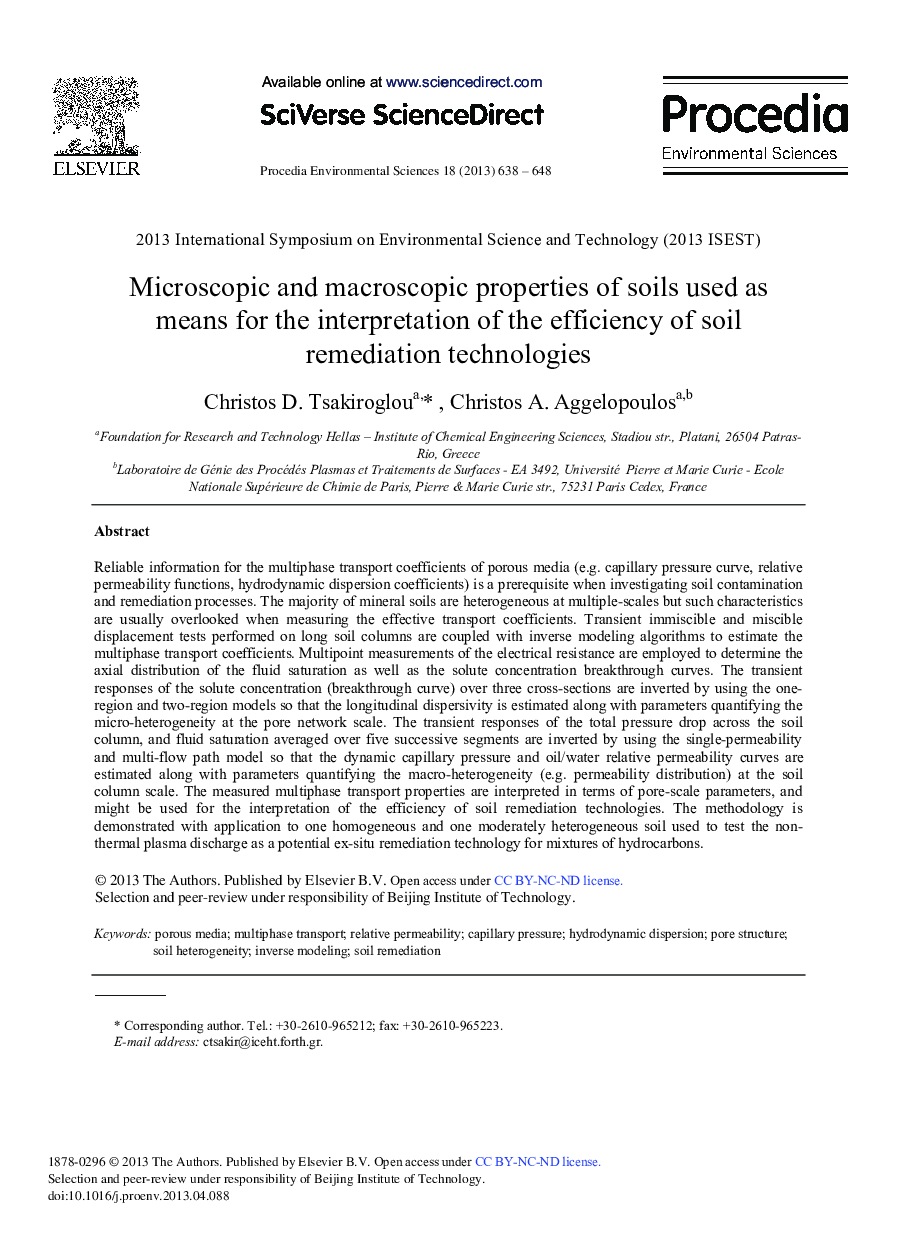| کد مقاله | کد نشریه | سال انتشار | مقاله انگلیسی | نسخه تمام متن |
|---|---|---|---|---|
| 4403020 | 1618626 | 2013 | 11 صفحه PDF | دانلود رایگان |

Reliable information for the multiphase transport coefficients of porous media (e.g. capillary pressure curve, relative permeability functions, hydrodynamic dispersion coefficients) is a prerequisite when investigating soil contamination and remediation processes. The majority of mineral soils are heterogeneous at multiple-scales but such characteristics are usually overlooked when measuring the effective transport coefficients. Transient immiscible and miscible displacement tests performed on long soil columns are coupled with inverse modeling algorithms to estimate the multiphase transport coefficients. Multipoint measurements of the electrical resistance are employed to determine the axial distribution of the fluid saturation as well as the solute concentration breakthrough curves. The transient responses of the solute concentration (breakthrough curve) over three cross-sections are inverted by using the one- region and two-region models so that the longitudinal dispersivity is estimated along with parameters quantifying the micro-heterogeneity at the pore network scale. The transient responses of the total pressure drop across the soil column, and fluid saturation averaged over five successive segments are inverted by using the single-permeability and multi-flow path model so that the dynamic capillary pressure and oil/water relative permeability curves are estimated along with parameters quantifying the macro-heterogeneity (e.g. permeability distribution) at the soil column scale. The measured multiphase transport properties are interpreted in terms of pore-scale parameters, and might be used for the interpretation of the efficiency of soil remediation technologies. The methodology is demonstrated with application to one homogeneous and one moderately heterogeneous soil used to test the non- thermal plasma discharge as a potential ex-situ remediation technology for mixtures of hydrocarbons.
Journal: Procedia Environmental Sciences - Volume 18, 2013, Pages 638-648